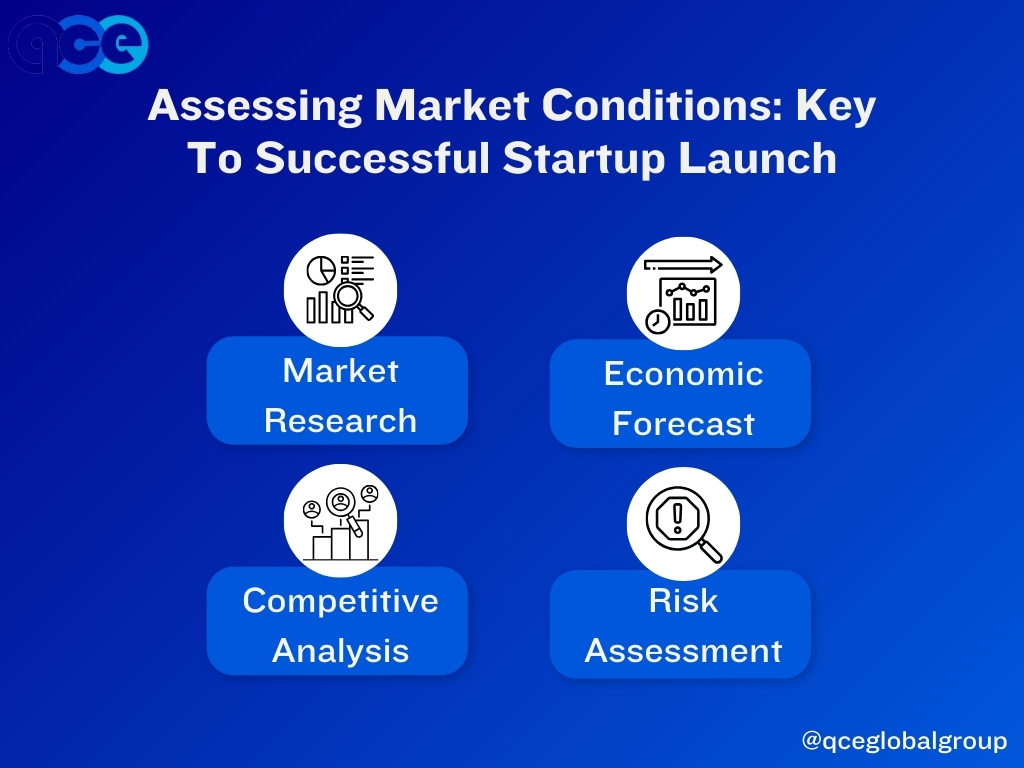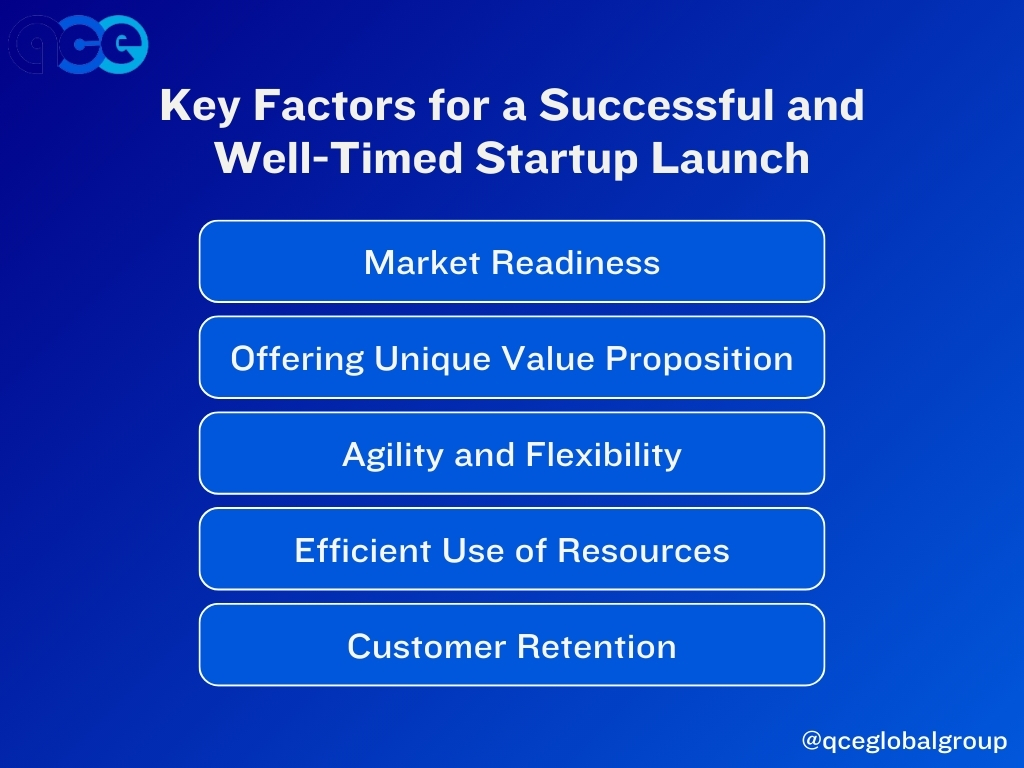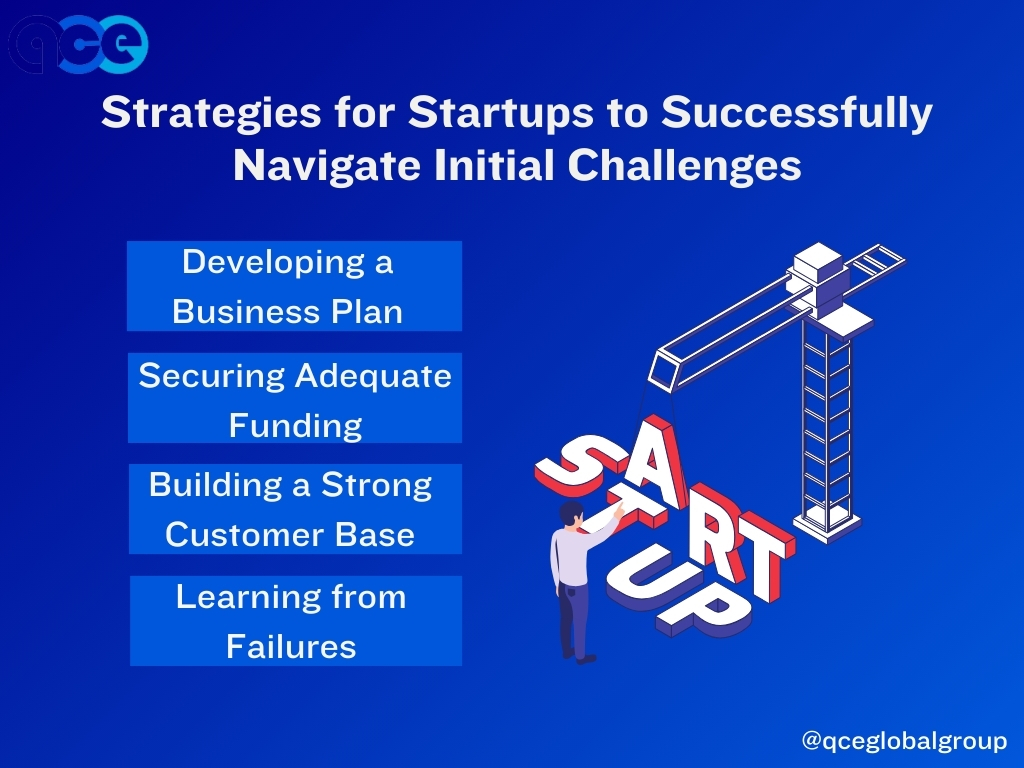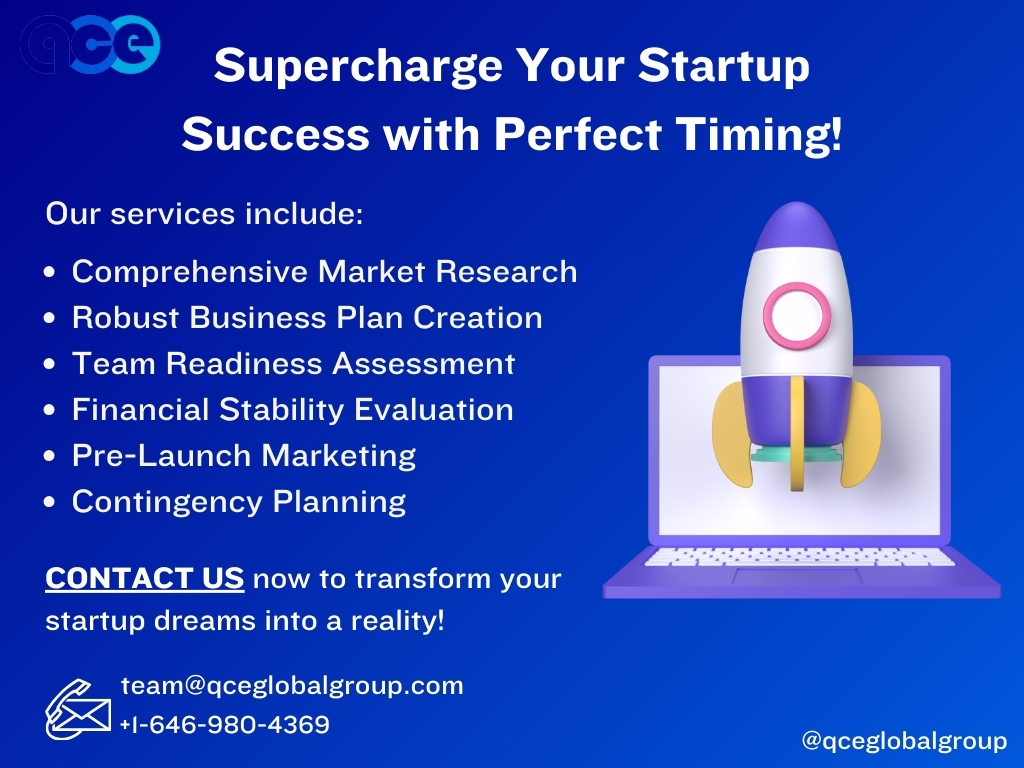Are you ready to launch your startup and make your entrepreneurial dreams come true?
Don’t risk launching at the wrong time and jeopardizing your business potential. Let our team of experts guide you in determining the perfect launch timing for your startup.
The success of a startup depends heavily on the timing of its launch. It’s important to understand market demand, economic cycles, and competition to avoid launching too early or late. Startup timing should coincide with market gaps, consumer readiness, and favorable economic conditions. Key factors to consider when deciding on a launch date include market readiness, seasonal trends, economic climate, competitors’ activities, product readiness, team readiness, and financial resources.
Understanding both macro and microeconomic conditions, along with industry trends, can provide a significant advantage. Facebook and Twitter are examples of startups that effectively timed their launch. A well-timed launch, thorough market research, a robust business plan, a strong team, and a contingency plan are all crucial for a successful startup launch.
Table of Contents
- Understanding the Right Timing for Your Startup Launch
- The Importance of Timing in Startup Success
- Factors to Consider When Deciding Your Startup Launch Date
- Assessing Market Conditions: Key To Successful Startup Launch
- How To Determine The Perfect Time For Your Startup’s Debut
- Why A Well-Timed Startup Launch Can Make All The Difference
- The Role Of Industry Trends In Determining Your Start-up’s Launch Time
- Successfully Navigating Through Initial Challenges: Timely Startups’ Way Forward
- Essential Tips And Tricks For A Well-Timed And Successful Startup Launch
- Final Thoughts
Understanding the Right Timing for Your Startup Launch
Launching a startup requires understanding the right timing for its success. Just as setting sail in stormy weather is not preferable, launching a startup at an incorrect time could lead to failure. A study reveals that 42% of startups fail due to no market need for their products or services. Therefore, before launching, it is essential to analyze market demand for your product or service to avoid launching too early or late, which could be detrimental to your business. The launch should coincide with a market gap and consumer readiness; otherwise, failure risks increase. An example of successful timing is Twitter, which launched at the SXSW Interactive conference in 2007, gaining traction because it met attendees’ needs.
The Importance of Timing in Startup Success

Timing plays a critical role in the success of a startup. It’s not just about identifying market gaps, but also about understanding how economic cycles can influence a startup’s success or failure. During economic recessions, consumer spending power decreases, while during boom periods, consumers are more open to trying new products/services. A study by Bill Gross, founder of Idealab, found that timing accounted for 42% of the difference between successful and unsuccessful startups. Launching a startup at the wrong time can lead to wasted resources, but waiting too long can also be detrimental, as competitors may beat you to market. In the fast-paced business world, being the first to launch an innovative idea can often be a decisive factor.
Here are the 10 Key Factors Highlighting the Importance of Timing in Startup Success:
- Understanding Market Cycles: Startups need to comprehend the economic patterns to determine the best time to launch their product or service. This includes understanding when consumers are more likely to spend or save.
- Timing the Market Entry: Timing the market is crucial because if a startup enters too early, it may not find a ready market. Conversely, if it enters too late, it may face stiff competition.
- Capitalizing on Market Trends: Startups should be aware of current and emerging trends to leverage them for success. This includes technological advancements, consumer behavior shifts, and changes in regulations.
- Synchronizing with Investment Cycles: The ability to secure funding is key for startups. Knowing when investors are likely to invest can make a significant difference in the success or failure of a startup.
- Timing Product Development: Success can also hinge on how efficiently a startup can develop its product or service. A well-timed product development process coincides with market readiness, ensuring maximum impact upon launch.
- Identifying Gap in the Market: The ability to identify and fill a market gap at the right time can lead to startup success. This requires thorough market research and the ability to predict future needs.
- Timing the Scaling Up: Knowing when to scale up is crucial. Expanding too quickly can lead to mismanagement, while scaling too slowly can result in missed opportunities.
- Timing Exits: For some startups, success means being acquired by a larger company. Knowing when to sell or go public is another component of good timing.
- Monitoring Competitors: Keeping an eye on competitors and their timing can help startups anticipate market changes and adjust their own timing accordingly.
- Adopting Agile Methodologies: Agile startups can adapt quickly to changing market conditions, making it easier for them to time their moves effectively.
Factors to Consider When Deciding Your Startup Launch Date
When deciding your startup launch date, several crucial factors should be taken into consideration. Market readiness is paramount, ensuring that there is a demand for your product or service at the time of launch. Timing is also crucial, and this can depend on various elements such as seasonal trends, economic climate, and potential competitors’ activities. Additionally, the readiness of your product or service for market is key – it’s essential that any bugs have been ironed out and that your offering is the best it can be. It’s also vital to consider the readiness of your team, ensuring they are prepared and equipped to handle operations, marketing, customer service, and sales. Lastly, the status of your funding and cash flow can also greatly impact your launch date; it’s important to have enough financial resources to support your startup through the launch and initial stages of operation.
- Market Research: Conduct a thorough market research to understand the demand, consumer behavior and market trends related to your product or service. This can help you determine the right time to launch.
- Competitive Landscape: Evaluate your competitors and their activities. Understanding when and how your competitors are launching similar products or services can help you choose a launch date that sets you apart.
- Product Readiness: Ensure your product or service is fully developed, tested, and ready for market. Launching a half-baked product could damage your reputation and customer trust.
- Operational Readiness: Check if your operations can handle the demand and provide smooth service post-launch. This includes production, distribution, and customer service.
- Team Readiness: Your team should be well-prepared and equipped to handle the tasks associated with the launch, including marketing, sales, and customer service.
- Funding Status: Make sure you have sufficient funds to support your startup through the launch and initial stages of operation. This includes marketing expenses, operations cost, and potential unexpected costs.
- Seasonal Trends: If your product or service is seasonal, plan your launch date accordingly to maximize sales and demand.
- Economic Climate: Consider the economic climate at the time of launch. During a recession, for example, consumers may be less likely to spend on non-essential goods or services.
- Marketing Plan: Your marketing strategy and plan should be ready and aligned with your launch date. The right marketing buzz can significantly impact the success of your launch.
- Legal and Regulatory Compliance: Ensure all legal and regulatory obligations related to your product or service are met before the launch. Failure to comply can lead to legal repercussions and delays in launch.
Assessing Market Conditions: Key To Successful Startup Launch

Understanding market conditions is crucial for a successful startup launch. The state of the market at launch time significantly impacts a company’s potential for success. Both macroeconomic conditions, such as economic recessions, and microeconomic ones, like consumer behavior, need to be considered. Startups offering discretionary products/services tend to do better in economic booms, while those offering necessary goods/services can be more resilient during downturns. Understanding changes in consumer needs before competitors can provide a significant advantage, as demonstrated by companies like Netflix, which early recognized the shift from DVD rentals to online streaming.
- Market Research: Conduct thorough market research to understand the current market trends, customer behaviors and preferences, and the competitive landscape. This will help to identify potential opportunities and threats and make more informed decisions.
- Market Segmentation: Identify and target specific market segments with customized products/services. This will help to differentiate from competitors and attract the right customers.
- Economic Forecast: Keep an eye on economic indicators and forecasts. This will help to anticipate market changes and adapt strategies accordingly.
- Consumer Behavior Analysis: Analyze consumer behavior to understand their needs, preferences, and purchasing patterns. This can provide insights to develop products/services that meet their needs and preferences.
- Competitive Analysis: Understand the strengths and weaknesses of competitors and their strategies. This can provide insights to develop competitive strategies and take advantage of their weaknesses.
- Product/Service Differentiation: Differentiate your product/service from competitors by offering unique features or benefits. This can help to attract customers and create a competitive advantage.
- Market Testing: Test your product/service in the market before the official launch. This can provide feedback to improve the product/service and prepare for the launch.
- Pricing Strategy: Develop a pricing strategy based on market conditions and customer willingness to pay. This can help to attract customers and maximize profits.
- Marketing Strategy: Develop a marketing strategy to promote your product/service and create awareness among potential customers. This should be based on market conditions and customer behaviors.
- Risk Assessment: Identify potential risks in the market and develop strategies to mitigate them. This can help to prevent losses and ensure the survival and success of the startup.
How To Determine The Perfect Time For Your Startup’s Debut
Determining the perfect time for your startup’s debut is a critical decision that requires careful consideration. It involves examining factors such as market conditions, competition, readiness of your product or service, and your overall preparedness to manage and sustain the business. Conduct thorough market research to understand the current trends and customer needs. Monitor your competitors to identify any gaps in the market that your startup could fill. Ensure your product or service is completely ready to avoid any glitches post-launch. Also, assess your financial stability, resources, and team’s readiness. Remember, timing is critical in business, so choose a period when your target audience is most likely to be receptive to your offering. The perfect time for your startup’s debut is when all these factors align favorably.
Here are the 10 Factors to Consider When Determining the Perfect Time for Your Startup’s Debut:
- Market Saturation: Determine the level of market saturation. If the market is already crowded with similar products or services, it may not be the right time for your startup’s debut.
- Competitor Analysis: Keep an eye on your competitors’ activities. If they are planning to launch new products or services, it may be better to wait until the market settles down.
- Customer Demand: Gauge customer demand for your product or service. If there is a high demand, it could be the perfect time for your launch.
- Product Readiness: Ensure your product or service is fully functional and ready for launch. Any glitches post-launch could harm your startup’s reputation.
- Financial Stability: Make sure you have adequate financial resources to support your startup through its initial stages. Running out of funds could be disastrous.
- Team Readiness: Assess your team’s readiness. Are they prepared for the hard work and long hours that come with a startup?
- Marketing Strategy: Have a solid marketing strategy in place. This will help you attract customers and generate buzz around your product or service.
- Regulatory Environment: Check if there are any regulatory changes or challenges that could affect your startup. It’s best to launch when the regulatory environment is favorable.
- Economic Conditions: Consider the overall economic conditions. If the economy is in a slump, it might not be the best time to launch your startup.
- Seasonality: If your product or service is seasonal, timing your launch to coincide with the high-demand season can increase your chances of success.
Why A Well-Timed Startup Launch Can Make All The Difference

A well-timed launch can make all the difference between success and failure for startups. Launching too soon might mean that the market isn’t ready for what you’re offering while launching too late might mean facing stiff competition from established players.
A case study worth mentioning is Facebook – when it first launched in 2004, there were already several social networking sites like MySpace and Friendster. However, Facebook managed to succeed because it offered something different (an exclusive network initially only for Harvard students) and also because these existing networks had glaring issues which users were unhappy about (like spam on MySpace).
Here are the 10 Key Factors for a Successful and Well-Timed Startup Launch:
- Market Readiness: Timing is crucial when it comes to launching a startup. If the market isn’t ready for your product or service, it could lead to failure. On the other hand, launching when the market is saturated with similar offerings could lead to tough competition and potential failure. Startups should conduct thorough market research to understand the ideal timing for their launch.
- Offering Unique Value Proposition: As demonstrated by Facebook’s example, even in a market with established players, a unique value proposition can help a startup succeed. Startups should strive to offer something different or better than their competitors to stand out.
- Capitalizing on Competitors’ Weaknesses: Facebook’s early success was partly due to the weaknesses of its competitors. Noticing and capitalizing on these weaknesses can provide a startup with a competitive edge.
- Gradual Expansion: Facebook initially launched exclusively for Harvard students before expanding to other colleges, and eventually to the general public. This gradual expansion allowed them to test their product, make necessary changes, and grow their user base steadily. Startups can consider a similar approach to manage their growth effectively.
- Agility and Flexibility: Startups should be agile and flexible, able to pivot quickly based on market feedback. This agility can help them adjust their product or service to better meet the needs of their target market, increasing the chances of success.
- Strategic Partnerships: Building strategic partnerships can also help startups succeed. These partnerships can provide resources, expertise, and credibility that can help a startup gain traction.
- Efficient Use of Resources: Startups usually operate on limited resources. Therefore, it’s crucial to use these resources efficiently. A well-planned and well-timed launch can help in optimal resource utilization.
- Risk Management: Launching a startup involves a certain level of risk. By launching at the right time, startups can manage and mitigate some of these risks.
- Building A Strong Brand: A well-timed launch can also help in building a strong brand. If a startup is able to capture the market’s attention at the right time, it can create a positive first impression that can contribute to strong brand building.
- Customer Retention: Launching at the right time can ensure better customer retention. If customers find value in a startup’s offering early on, they are more likely to remain loyal in the long run.
The Role Of Industry Trends In Determining Your Start-up’s Launch Time
Keeping an eye on industry trends is crucial when deciding when to launch a startup. If there’s an emerging trend that aligns with what you’re offering, it might be a good idea to ride this wave. For example, during the COVID-19 pandemic, many remote work tools and online learning platforms saw a significant increase in demand. Companies offering such services that were ready to launch during this time likely saw better results than they would have otherwise.
Another example is the rise of artificial intelligence (AI) and automation technologies. Startups offering AI-based solutions are currently in high demand due to businesses seeking ways to improve efficiency and reduce costs.
- Comprehensive Industry Research: Startups need to conduct thorough market research to understand the current state of the industry and predict future trends. This can help them identify the optimal time to launch their product or service.
- Aligning Product with Trend: The product or service that a startup offers must align with the current industry trend. For instance, during the rise of ecommerce, startups that offered online retail platforms or related services had a better chance of success.
- Competitive Landscape: Keep an eye on the competitive landscape and the actions of industry leaders. If they are shifting their focus or launching new products, it might be indicative of an upcoming trend.
- Early Adoption of Technology: Startups need to be early adopters of new technologies to stay ahead of the curve. This can help them capitalize on emerging trends before they become mainstream.
- Market Demand: Identify the needs and wants of the market to determine if your product or service is likely to be in demand. For example, during the pandemic, there was a surge in demand for remote work tools and online learning platforms.
- Regulatory Environment: Keep track of changes in regulations that could impact your startup’s launch and operation. For instance, changes in data privacy laws could impact startups in the digital space.
- Leveraging Analytics: Use data analytics to gain insights into customer behavior, market trends, and industry dynamics. This can help startups predict future trends and time their launch accordingly.
- Collaborating with Industry Experts: Collaborate with industry experts who can provide insights into the current trends and future predictions. Their knowledge and expertise can be invaluable in determining the right time to launch a startup.
- Economic Conditions: The state of the economy can greatly influence industry trends. Startups need to assess the economic conditions and consumer sentiment to determine the most favourable time to launch.
- Investment Climate: The availability of funds and the willingness of investors to invest can also determine the right time to launch your startup. If there is a trend of increased investment in a particular sector, it may be a good time to launch a startup in that area.

Successfully navigating through initial challenges is the key to a startup’s success and survival in the competitive business world. This requires strategic planning, resilience, adaptability, and a timely execution of operations. Startups often face numerous hurdles in their initial stages, from securing funding to establishing a strong customer base, to surviving in a saturated market. However, these challenges can be overcome by adopting a timely approach. A well-structured business plan that includes a detailed timeline for achieving specific goals can be instrumental in guiding startups through the rough waters of the initial stages. Furthermore, timely decision-making and prompt problem-solving can help startups adapt to changes, seize opportunities, and mitigate risks, thus ensuring their steady progress and growth. Therefore, a timely approach is the way forward for startups to navigate through their initial challenges successfully.
Here are the 10 Strategies for Startups to Successfully Navigate Initial Challenges:
- Developing a Comprehensive Business Plan: Startups should focus on creating a comprehensive business plan outlining their objectives, strategies, financial projections, and timelines. This plan will serve as a roadmap, guiding startups in making pivotal decisions and achieving their goals.
- Embracing Agility: In the face of an ever-changing business environment, startups need to embrace agility. Agile startups can quickly adapt to new market trends, customer preferences, and technological advancements, enabling them to stay ahead of the competition.
- Securing Adequate Funding: Startups should explore various sources of funding, including venture capital, angel investors, and crowdfunding platforms. They should also keep a close eye on their financial health to ensure they have enough funds to operate and grow their business.
- Building a Strong Customer Base: Startups should prioritize customer acquisition and retention. This can be achieved by offering quality products or services, excellent customer service, and competitive prices. Startups should also leverage digital marketing strategies to reach a wider audience and attract potential customers.
- Nurturing a Resilient Culture: Startups should foster a culture of resilience among their team members. This will enable them to navigate through challenges and setbacks without losing morale or productivity.
- Leveraging Technology: Startups should leverage the latest technologies to streamline their operations, enhance their efficiency, and improve their products or services. Technology can also provide valuable insights into customer behavior, market trends, and business performance.
- Building Strategic Partnerships: Startups can overcome many initial challenges by forming strategic partnerships with other businesses. These partnerships can provide startups with additional resources, expertise, and market access.
- Seeking Professional Guidance: Startups should seek guidance from industry experts, mentors, and business consultants. These professionals can provide valuable advice and insights, helping startups avoid common pitfalls and achieve their goals faster.
- Regular Review and Revision: A startup’s business plan should be a living document. Regular review and revision will help startups stay on track and make necessary adjustments in the face of new challenges or opportunities.
- Learning from Failures: Lastly, startups should view failures as learning opportunities. Analyzing failures can provide valuable insights into what works and what doesn’t, helping startups refine their strategies and make better decisions in the future.
Essential Tips And Tricks For A Well-Timed And Successful Startup Launch
Launching a successful startup requires meticulous planning, strategic decision-making, and a well-timed execution. One of the essential tips is to conduct thorough market research to understand the demand, competition, and potential challenges. Having a robust business plan, which includes financial projections and marketing strategies, is equally crucial. Building a strong team that shares your vision and has the necessary skills to execute the plan is another significant aspect. In terms of timing, it is advisable to launch when the market conditions are favorable, and there is a clear need for your product or service. It is also important to build a pre-launch buzz using social media and other marketing tools to create awareness and anticipation. Moreover, having a contingency plan to deal with potential hurdles and being open to feedback and adjustments can greatly contribute to a successful startup launch.
- Comprehensive Market Research: Before launching a startup, conduct an in-depth market analysis to understand the demand for your product or service, the competition you will face, and potential challenges that may arise. This information will help shape your business plan and strategies.
- Robust Business Plan: A detailed business plan is vital for a successful startup launch. This should encompass all aspects of the business, including the vision and mission, financial projections, marketing strategies, operational strategies, and growth plans.
- Building a Competent Team: Assemble a team of professionals who not only possess the necessary skills and expertise but also share your vision and passion for the business. A strong team can effectively execute the business plan and overcome potential challenges.
- Timely Launch: Timing is critical for a successful startup launch. Aim to launch when market conditions are favorable, customer demand is high, and there is a clear need for your product or service.
- Pre-Launch Marketing: Create a buzz before your startup launch using various marketing tools such as social media, email marketing, and PR activities. This will create awareness and anticipation among potential customers, leading to a successful launch.
- Contingency Planning: Despite meticulous planning, unforeseen challenges may arise. Having a contingency plan will ensure that you are prepared to deal with such situations and minimize their impact on the business.
- Open to Feedback: Be open to feedback from customers, team members, and industry experts. This will provide valuable insights for improving your product or service and refining your strategies.
- Continuous Learning and Adaptation: The business environment is dynamic and constantly changing. Stay updated with the latest trends and changes in the market, and be ready to adapt your strategies accordingly. This will help you stay ahead of the competition and ensure the sustained success of your startup.
Final Thoughts
In conclusion, the timing of a startup launch is vital in determining its success or failure. The launch should align with market readiness, economic climate, competition, and the readiness of the product or service. Keeping abreast of industry trends and conducting thorough market research can provide valuable insights and help in determining the right time for launch. Other significant factors include the readiness of the team, the financial stability of the startup, and the ability to navigate initial challenges. A well-structured business plan, strategic decision-making, and a timely approach can significantly contribute to a successful startup launch. Facebook and Twitter serve as great examples of startups that nailed the timing of their launch, offering lessons for future entrepreneurs.

Don’t leave your startup’s success to chance. Act now and let us help you turn your visionary idea into a successful business reality.
Contact us today!


